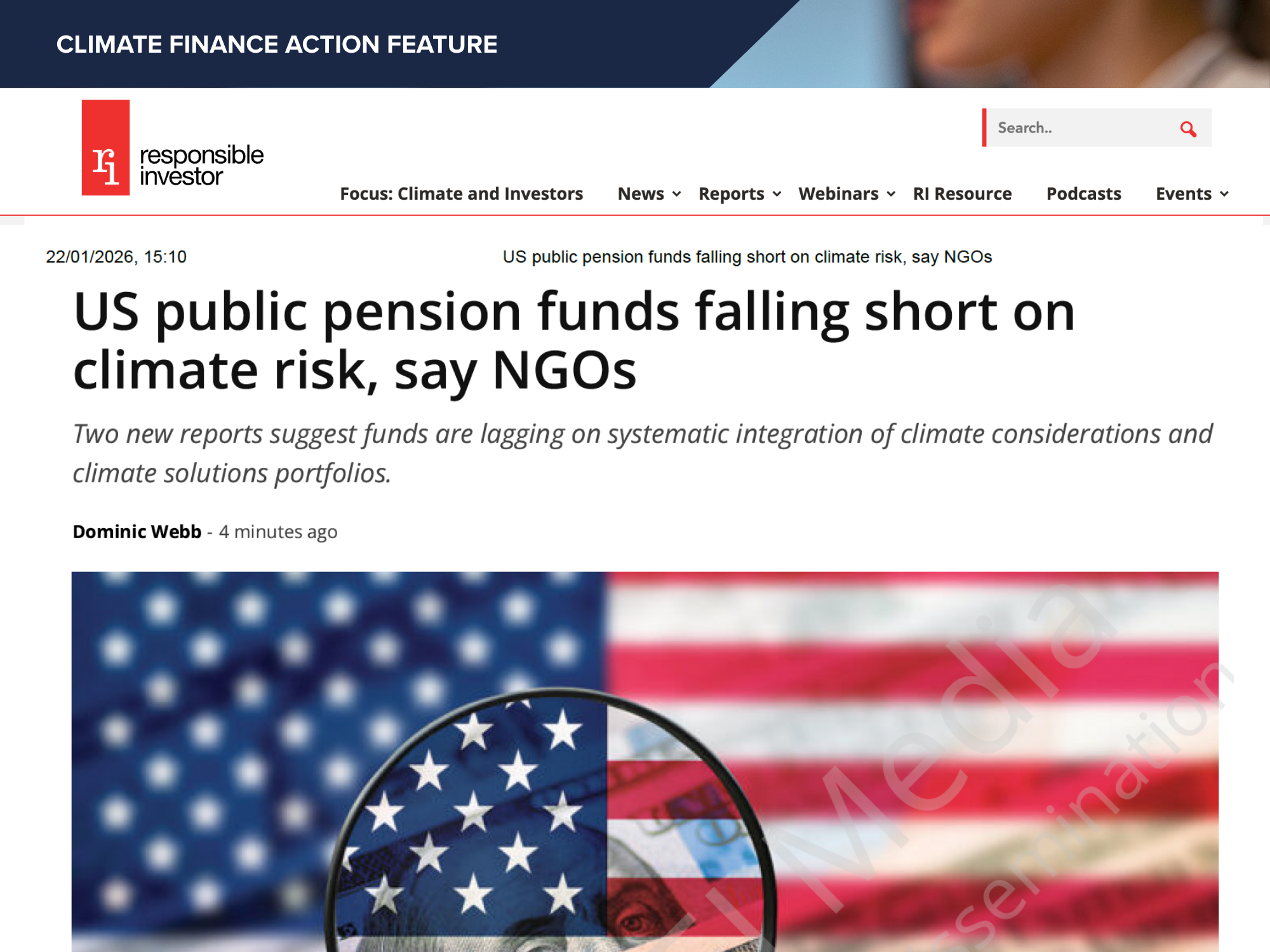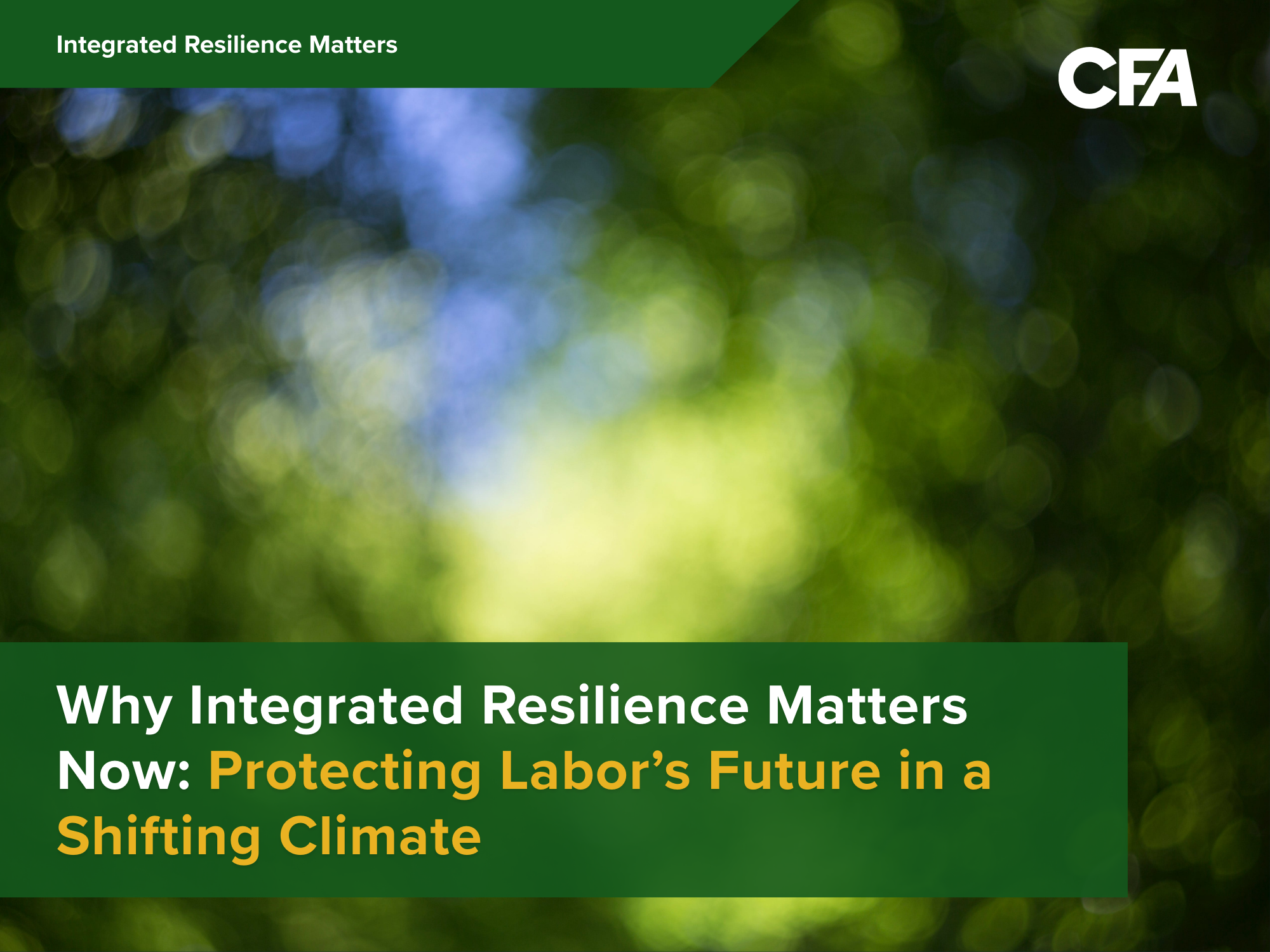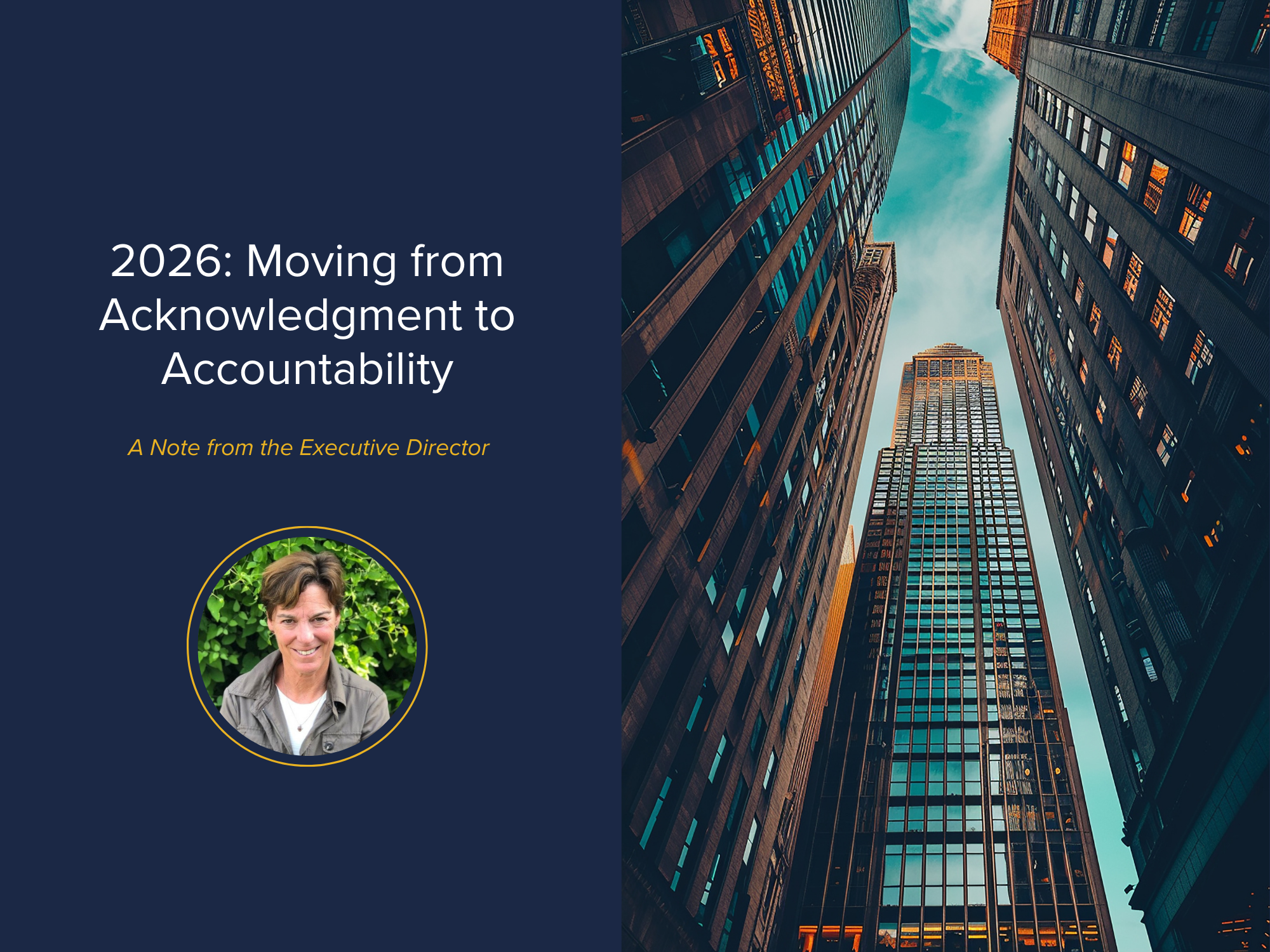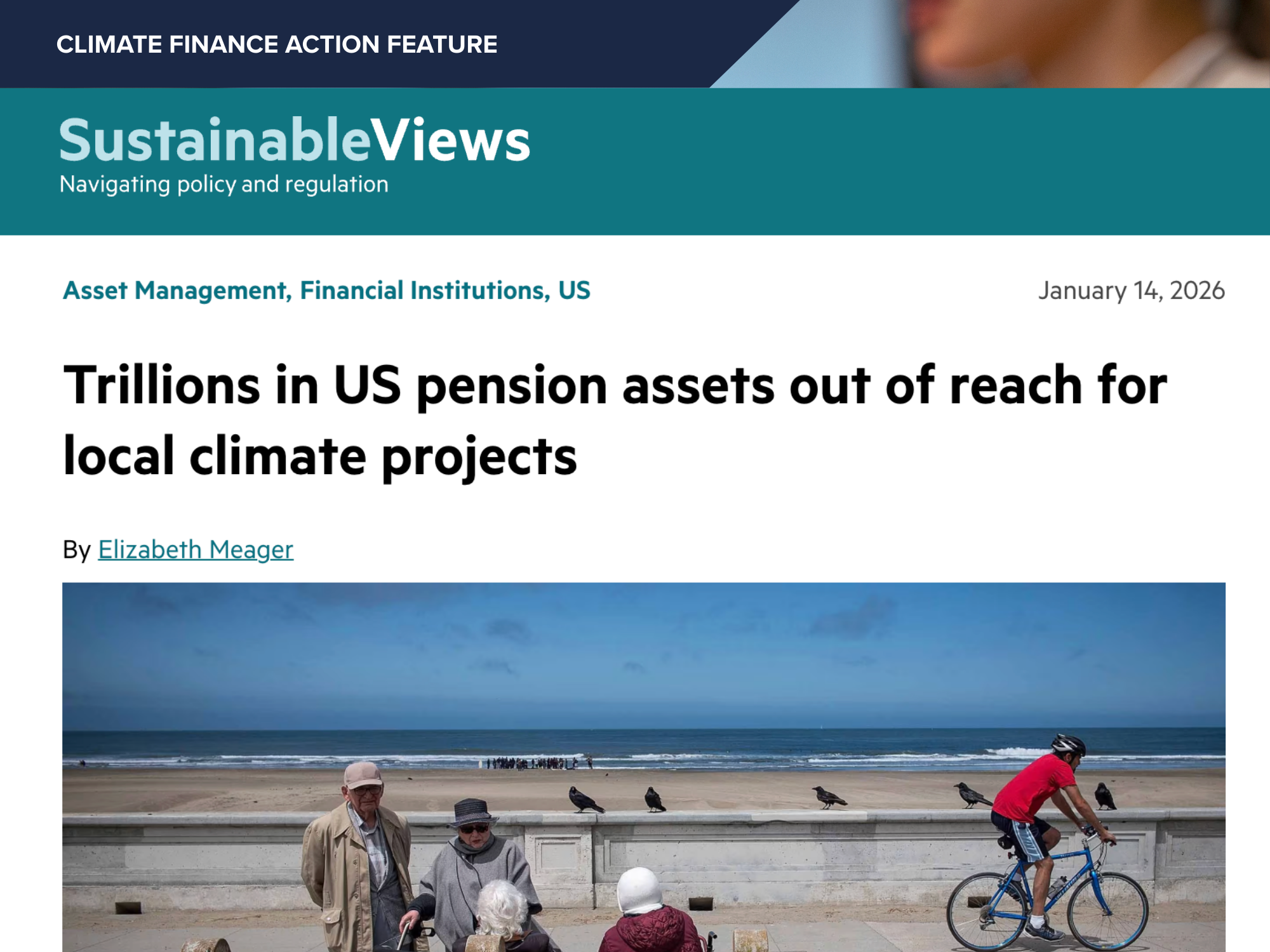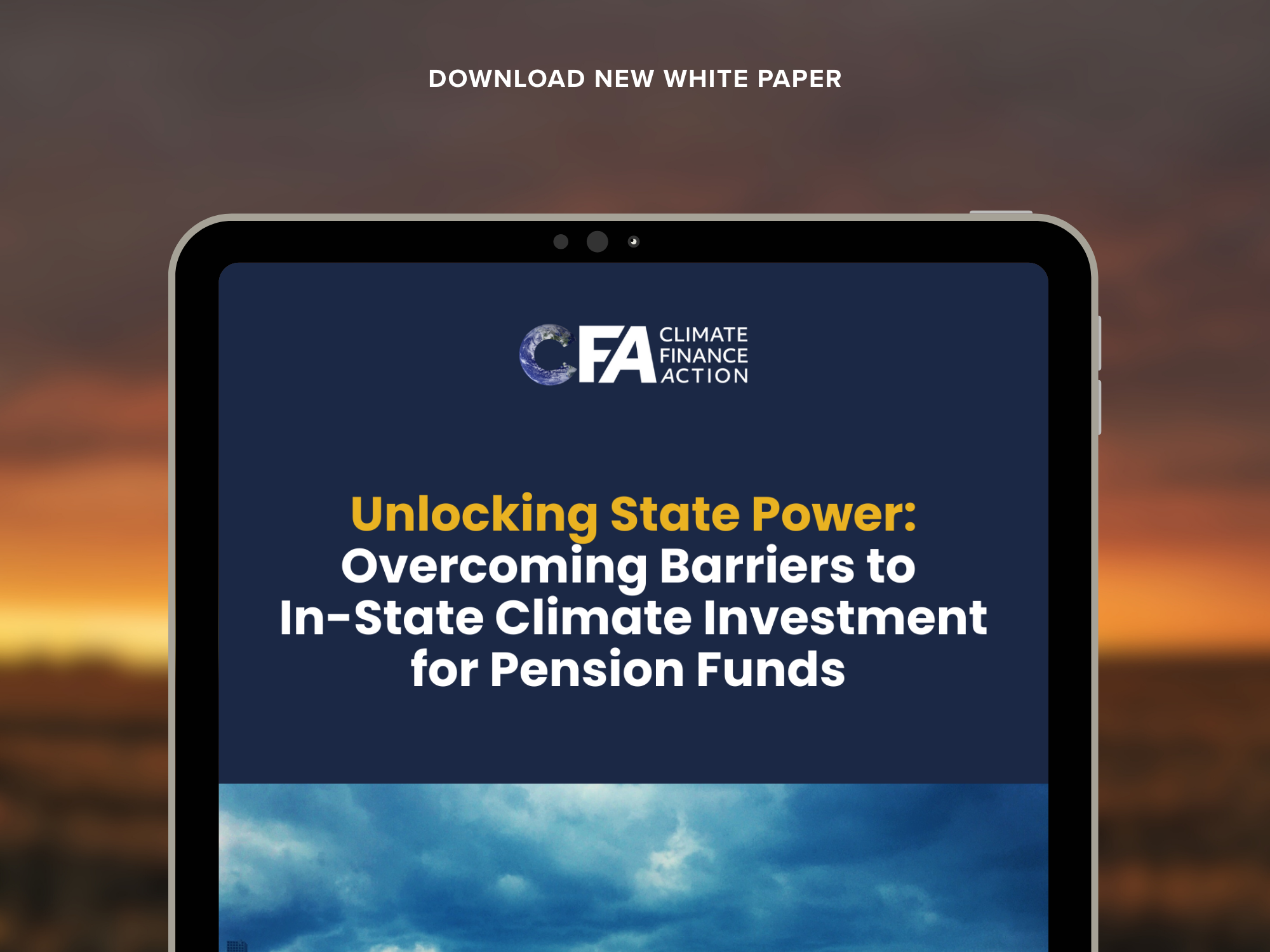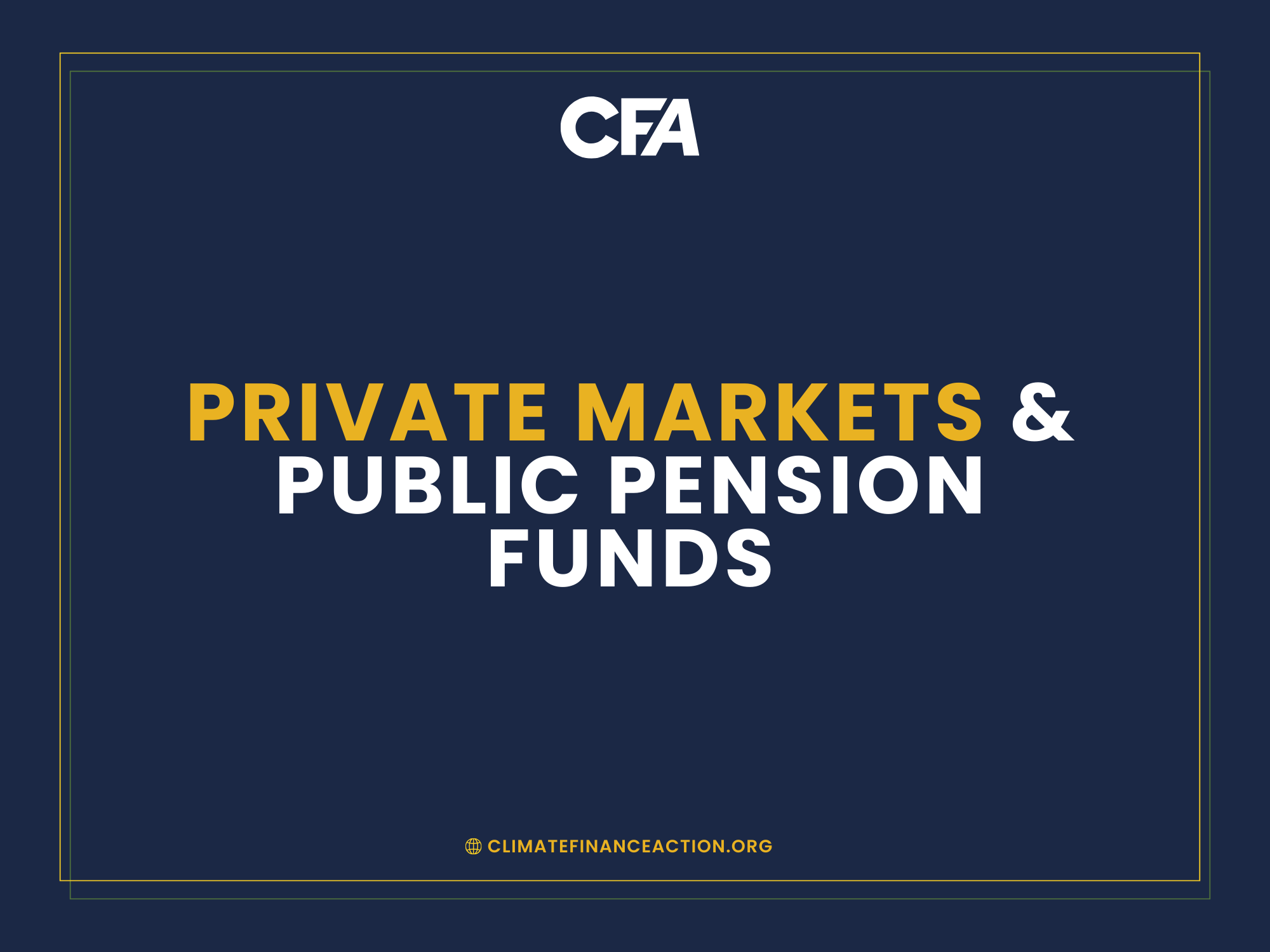
Climate Finance Action Blog
Responsible Investor Feature: US public pension funds falling short on climate risk, say NGOs
Responsible Investor features Climate Finance Action’s research on why US public pension funds are falling short in addressing climate risk as a systemic financial issue, highlighting governance gaps, outdated risk models, and barriers to scaling climate solutions.
Why Integrated Resilience Matters Now: Protecting Labor’s Future in a Shifting Climate
As climate risk reshapes regional economies, union leaders and pension stakeholders must move beyond compliance-focused climate disclosures toward integrated resilience and transition readiness. This blog outlines why better data, forward-looking governance, and active engagement are essential to protecting workers’ jobs, pensions, and long-term economic stability.
Moving from Acknowledgment to Accountability: A Note from the Executive Director
As climate risk becomes undeniable financial risk, the challenge facing public finance is no longer awareness, but action at scale. In this letter, CFA’s Executive Director outlines how Climate Finance Action is focusing its 2026 work on modernizing fiduciary duty, empowering beneficiaries, and scaling a just transition rooted in high-quality jobs and resilient communities.
Unlocking State Power: How Public Pension Funds Can Drive In-State Climate Investment
State pension funds have the capital to secure retirements while strengthening local economies and advancing climate resilience, yet many U.S. funds underinvest in opportunities within their own states. Drawing from Unlocking State Power: Overcoming Barriers to In-State Climate Investment for Pension Funds, this blog explains how governance gaps, rigid asset frameworks, and cultural inertia—not a lack of viable projects—are the real barriers.
Video: Risk and Opportunity in Private Market Investments
Learn how public pensions can manage climate risk and opportunity in private markets with responsible stewardship in mind.
Measuring Impact Through People: Five Years of Climate Finance Action
Over five years, Climate Finance Action has helped trustees, union leaders, and public financial officials better understand and act on climate risk within public pension systems. By translating complex financial and climate concepts into practical tools, building trusted partnerships, and supporting policy and governance reforms, CFA is strengthening long-term retirement security while advancing climate-resilient investment practices.
Video: Public Pensions and the Prisoner’s Dilemma - Part 2
Public pension funds face systemic risks like climate change, inequality, and market instability that cannot be diversified away. This explainer uses the Prisoner’s Dilemma to show how long-term investors can shift outcomes through cooperation, engagement, proxy voting, and shared governance strategies that protect retirement security and market stability.
The Two Strategies Every Climate-Resilient Pension Needs: Mitigation and Adaptation
This blog breaks down the two essential strategies every climate-resilient pension needs: mitigation and adaptation. These strategies help pension funds protect workers’ retirement security, reduce systemic financial risk, and invest in a more stable, resilient future.
Resource: Managing Climate Risk and Opportunity in Private Market Investments
In this new resource, Managing Climate Risk and Opportunity in Private Market Investments, Climate Finance Action offers a clear, practical guide to understanding how climate and labor risks show up in private markets, what responsible stewardship looks like, and how pension stakeholders can strengthen oversight, accountability, and long-term resilience.
Video: Mitigation vs. Adaptation - Two Key Ways to Address Climate Change
Mitigation means reducing or preventing greenhouse gas emissions, while adaptation is about managing the impacts of climate change.
Video: Let’s Talk About Double Materiality...
Double materiality looks at the financial risk to the company and the company’s impact on the people and planet. This is critical for pension funds and long-term investors.
Video: Three Ways to Engage Pension Trustees as a Beneficiary
If you have a public pension, you already have a voice — the question is, how do you use it? Here are three ways to engage the trustees who oversee your retirement fund.
Video: Let’s Talk About the Prisoner’s Dilemma...
If you’ve ever played a game where everyone loses because no one was willing to take the first risk, you already understand the Prisoner’s Dilemma. It’s one of the simplest and most powerful concepts in economics and game theory.
Video: What is Pension Power, and How Do You Use It?
Your pension is a powerful lever for change. Pension Power is the collective influence of all our retirement savings. We're talking about nearly $6 trillion. Keep reading to learn more.
Video: Let’s Talk About Shareholder Power
Shareholder power lets pension funds vote on corporate policies, elect board members, and push for more responsible business practices. It’s one of the strongest tools workers have to ensure the companies they’re invested in align with their long-term interests.
ImpactAlpha: At Tesla’s upcoming shareholder meeting, the spotlight is on governance
In a guest post on ImpactAlpha, CFA Founder and Executive Director Mary Cerulli shares a primer for proxy voters wrapping their heads around complicated governance proposals.
What Does the Prisoner’s Dilemma Have to Do with Public Pension Funds?
Discover how the Prisoner’s Dilemma explains why shared responsibility among public pension funds is key to addressing systemic risks like climate change. This blog explores how informed stewardship can turn shared challenges into shared progress.
Understanding Alpha and Beta: What They Mean for Pension Funds
Alpha and beta describe different forces that shape investment performance. One is about skill or the ability to make smart choices that add extra value. The other is about conditions or how the overall market behaves and how much a portfolio moves in response to these conditions. Both help pension trustees and members make sense of where returns come from and how to build long-term stability.
Speaking Up on Climate Risk: Protect Your Pension and Shape a Resilient Future
Learn how to speak up at pension board meetings and advocate for responsible climate risk management. This step-by-step guide helps pension members and trustees prepare effective testimony, highlight key climate risks, and protect long-term retirement security.

